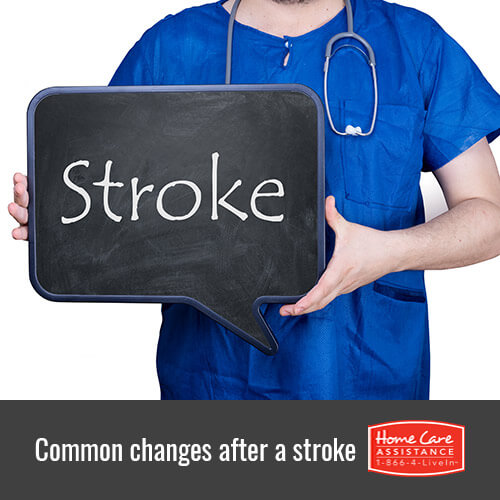After a senior loved one has experienced a stroke, you may discover there are many emotional and behavioral challenges that must be overcome. While some of these changes disappear with time, these challenges can be managed with the right type of Anchorage stroke care.
Inappropriate Emotional Reactions
When your loved one suddenly laughs at bad news or cries during a funny movie, it may confuse you and your family. However, this is completely normal following a stroke, resulting from a condition called emotional lability. When these reactions occur, it is best to continue with your normal routine. If they are disruptive, switching to a new activity may help your loved one focus on more appropriate reactions.
Depression
Strokes often leave seniors with reduced abilities, and it is normal for them to feel some sadness about lifestyle changes. However, any sadness that seems extreme or lasts longer than a few weeks could mean your loved one is depressed. Talk to your loved one’s medical team about the symptoms, and make sure he or she has plenty of companionship to keep spirits lifted.
Impulsiveness
Stroke symptoms can vary depending on the area of the brain where the lesion occurs. If the stroke affected the areas of your loved one’s brain that regulate behavior, he or she may begin to make risky choices. If your loved one’s behavior is putting his or her health or financial security at risk, it may be necessary to appoint an Anchorage caregiver to manage the behavior.
Personality Changes
Stroke survivors can become absorbed with their own situations, and it can be hard for caregivers to handle the self-centeredness. The changes to your loved one’s personality can also cause him or her to lack empathy and prefer to be alone. Being patient and offering compassionate companionship can help your loved one avoid becoming isolated while giving him or her support to recover his or her personality.
Though the road to stroke recovery can be long and challenging, you and your loved one don’t have to face it alone. At Home Care Assistance, our part-time and live-in caregivers are expertly trained in stroke care and can provide the emotional support your loved one needs whenever he or she needs it. For more information on the in-home care Anchorage families trust, call one of our knowledgeable Care Managers at (907) 770-0907 and request a complimentary consultation.
